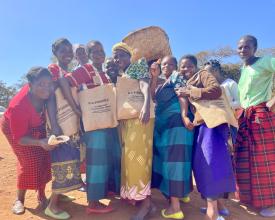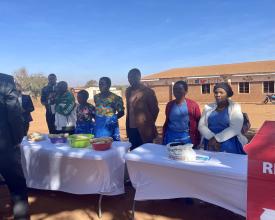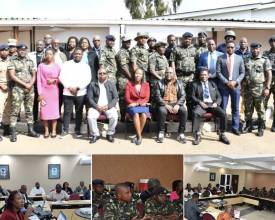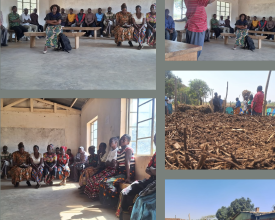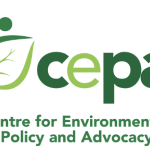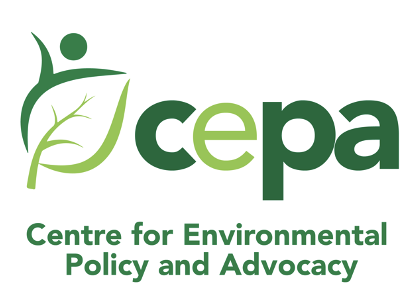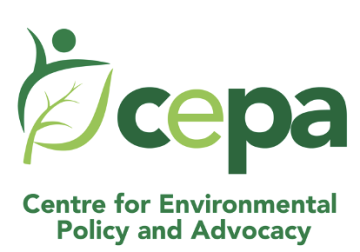
WOMEN COOPERATIVES PRODUCE THEIR OWN COMPOST TO RESTORE MALAWI'S SOIL
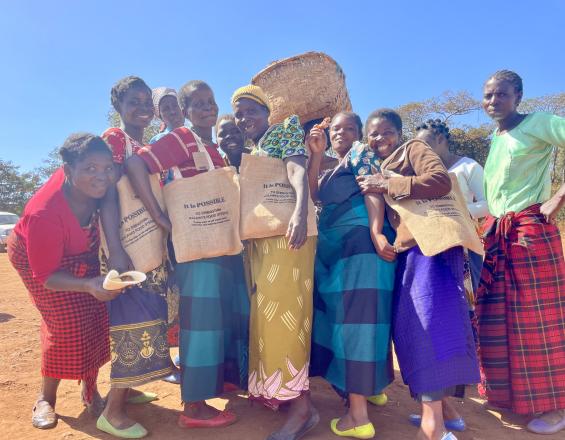
Malawi faces a severe soil crisis due to land degradation, threatening food security and livelihoods. At the same time, large amounts of organic waste go unused, contributing to environmental pollution. The "POSSIBLE" project addresses these challenges by training farmers to produce their own compost, turning waste into a valuable resource for soil restoration. This initiative has empowered women’s cooperatives to take the lead in compost production, creating sustainable businesses while improving soil fertility. By transforming waste into an opportunity, the project enhances agricultural productivity, restores degraded land, and provides economic benefits. Through hands-on training and cooperative models, communities are building resilience, ensuring long-term sustainability for both people and the environment.
Contexto
Défis à relever
The women-led composting initiative in Malawi addresses key environmental, social, and economic challenges. Environmentally, it combats soil degradation by restoring nutrients through compost use and promotes sustainable waste management by converting the 445,000 tonnes of organic waste produced annually in cities into compost, reducing pollution and harmful emissions. Socially, it empowers women by challenging gender norms and enabling them to take on roles beyond the household, fostering confidence and community leadership. Economically, women earn income from compost sales, gain bargaining power, and access better markets through linkages supported by the Centre for Environmental Policy and Advocacy and WASTE Advisers. Training in quality compost production has further enhanced their skills, product quality, and financial independence.
Ubicación
Procesar
Summary of the process
Capacity building, market linkages, and strategic partnerships are interdependent elements that collectively drive the success of the women-led composting initiative in Malawi. Capacity building through hands-on training equips women with technical skills in quality compost production and business management, laying the foundation for sustainable enterprises. These newly acquired skills are strengthened by linking women groups to reliable markets, ensuring that their compost has consistent demand, which motivates them to maintain quality and increase production. In turn, strategic partnerships with city councils and other stakeholders support the entire value chain by securing access to organic waste through improved municipal waste systems. The project also advocates for supportive policies, reinforcing a systemic shift toward sustainable waste management and organic soil restoration. Each element builds upon and complements the others—skills enable production, market access drives economic sustainability, and partnerships ensure resource availability and policy support—creating a holistic solution that restores degraded soils while empowering women economically and socially.
Building Blocks
Building Skills for Soil Regeneration and Business Growth
Through tailor-made capacity-building trainings, women have gained the technical skills to produce high-quality compost and the knowledge to run successful compost businesses. Trainings in business management and gross margin analysis have empowered them to track profits, plan growth, and sustain their enterprises—laying a strong foundation for both soil restoration and economic resilience.
Unlocking Market Access to Strengthen Women-Led Compost Businesses
Under the Promoting Organic Systems of Soil Improvements to Build a Lasting Economy (POSSIBLE) Project, women’s compost products are linked to reliable markets. This market access has boosted incomes, improved product consistency, and enabled women to scale up their operations—contributing to wider adoption of composting for improved soil health.
Strengthening Systems Through Strategic Partnerships
The project works closely with city councils to establish efficient municipal waste management systems, ensuring a steady supply of organic waste for composting. In addition, it advocates for policy development that supports composting, waste segregation, and circular economy practices. These partnerships and advocacy efforts are vital to creating an enabling environment for sustainable compost production and long-term soil restoration in Malawi.
Impacts
The solution has demonstrated significant positive impacts across environmental, social, and economic dimensions. Environmentally, it is supporting soil regeneration and sustainable land use, with 62 hectares now under sustainable management practices, including the use of compost produced by women-led groups. This contributes to improved soil health and reduced dependence on chemical fertilizers, which in turn supports healthier ecosystems and biodiversity. Economically, smallholder farmers have experienced increased crop productivity, with an average yield of 2,906 kg/ha during the 2023/2024 cropping season—boosting food security and incomes. Socially, the initiative is empowering women through involvement in compost production and enterprise, fostering inclusive participation in green economy practices. At a systemic level, it is enhancing the institutional environment for organic waste-to-compost systems and encouraging commitment from city authorities and local actors to support green transitions in agriculture and waste management across Malawi.
Beneficiaries
1,000 smallholder farmers gaining affordable inputs and better yields.
Blantyre and Lilongwe city councils have lower waste management costs and less landfill pressure.
Ministry of Agriculture advances soil fertility through increased compost adoption.
Global Biodiversity Framework (GBF)
Sustainable Development Goals
Story
Women from Mtandile township in Lilongwe turned an unlikely business idea into a thriving business
venture. The group is producing compost from organic waste collected around Lilongwe city. The
group is called Mwatikonde Club and is under the leadership of Norah Baziwelo. According to Norah,
they started operating the business after noticing the high rates of waste generated in the city that
was being put to waste. The group started turning the organic waste into compost and sold within
the city. The group is being supported by WASTE Advisers and CEPA through capacity building in
quality compost production, record keeping and other areas. They are also being linked to markets.
WASTE Advisers and CEPA are implementing a Promoting Organic Systems of Soil Improvements to
Build a Lasting Economy projects with funding from European Union. The project aims at enhancing
sustainable agriculture and food systems in Malawi. One of the key interventions is promoting the
use of compost for soil fertility improvements. This compost is procured from groups such as
Mwatikonde and supplied to farmers under the project. Norah acknowledged that the business and
access to markets for the compost has improved their incomes and livelihoods.

